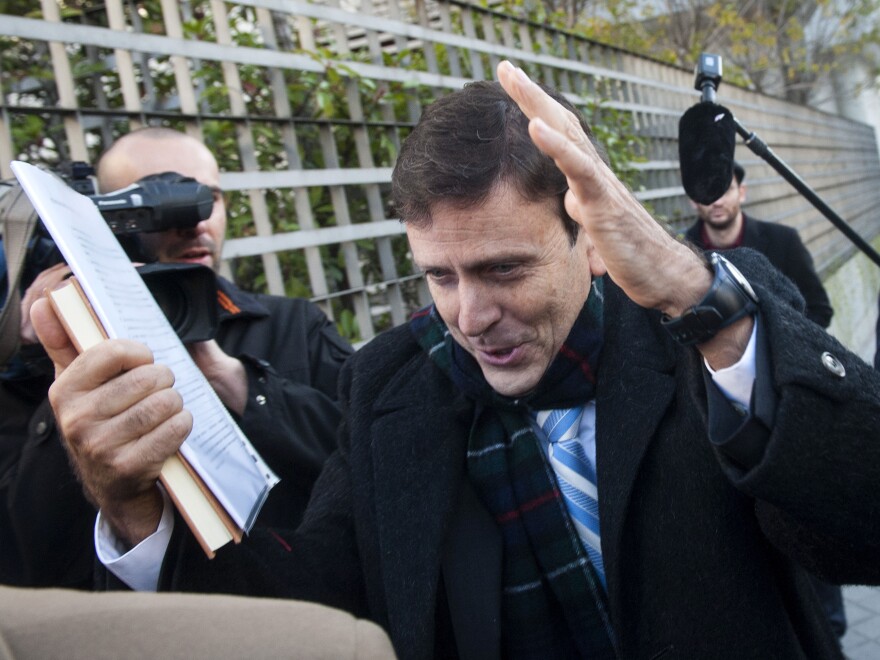A famous doctor is on trial in Spain, accused of masterminding one of the world's biggest sports doping rings. His clients are believed to include at least one former teammate of disgraced cyclist Lance Armstrong and dozens of other cyclists who raced against him.
Nearly seven years ago, Spanish police raided the office Dr. Eufemiano Fuentes in Madrid and seized more than 200 bags of frozen blood. The bags had been labeled with cryptic codes. Since then, investigators have been trying to decipher the code and reveal the names of Fuentes' clients.
Fuentes is a top hematologist who developed a way to increase oxygen flow in the blood, by using drugs and blood transfusions. The method is especially useful for professional cyclists. But in court, Fuentes told a judge that he treated all sorts of athletes.
"Cyclists, soccer players, whole soccer teams — even boxers. I treated them all," he said.
Europe is frantic over which famous sports stars might have been involved. So far, the doctor has refused to name names.
Fuentes and three other suspects are charged with endangering public health, rather than doping. Spain didn't have an anti-doping law back in 2006, when they were arrested. It does now.
The doctor claims what he did was perfectly legal at the time.
"He admits the blood transfusions," says Christophe Lehousse, a French journalist covering the trial. "He says it wasn't any danger for cyclists. On the contrary, it was good for their health."
"What Fuentes doesn't admit is the part of the products," Lehousse says. "Because he could be in some trouble, since some of the products come from foreign countries like Russia, like China — which is illegal."
The products could include things like Actovegin, a drug made from cow blood in Russia.
Prosecutors need to prove that Fuentes endangered his clients' lives. Their star witness is Jesus Manzano, a former cyclist who collapsed during the 2003 Tour de France after a treatment from Fuentes.
"He injected me with 50 milliliters of Oxyglobin," Manzano testified. "Then I started the stage, and felt worse and worse — and finally I fainted."
Oxyglobin is a drug made for dogs. Manzano blames Fuentes for ending his career. He told the court the doctor hid steroids in empty wine bottles and handed out mysterious pills — pills Manzano says he had no choice but to take.
"I couldn't confront them," he said. "If you even questioned these methods, you'd be out on the street. They'd fire you from the team."
One former cyclist accused of helping Fuentes has since committed suicide.
There is also an elephant in the Madrid courtroom — and his name is Lance Armstrong. He hasn't been mentioned directly, but nearly all the cyclists testifying here trained with Armstrong or competed against him.
Armstrong had a house in Spain, and at least one of his former teammates, Tyler Hamilton, is believed to have been one of Fuentes' clients.
Hamilton takes the stand Tuesday. In a 60 Minutes interview in 2011, he denounced Armstrong for taking a banned drug.
"I saw it in his refrigerator. I saw him inject it, more than one time," he said. Asked if he saw Armstrong inject EPO, Hamilton answered, "Yeah, like we all did."
EPO increases the amount of oxygen blood can carry to muscles. It's the drug for which Dr. Fuentes was famous. He faces two years in prison if convicted.
Copyright 2021 NPR. To see more, visit https://www.npr.org.




